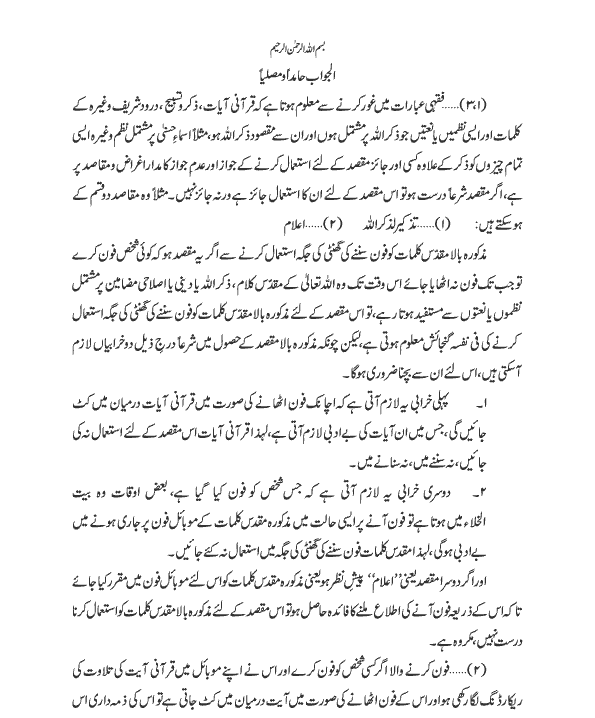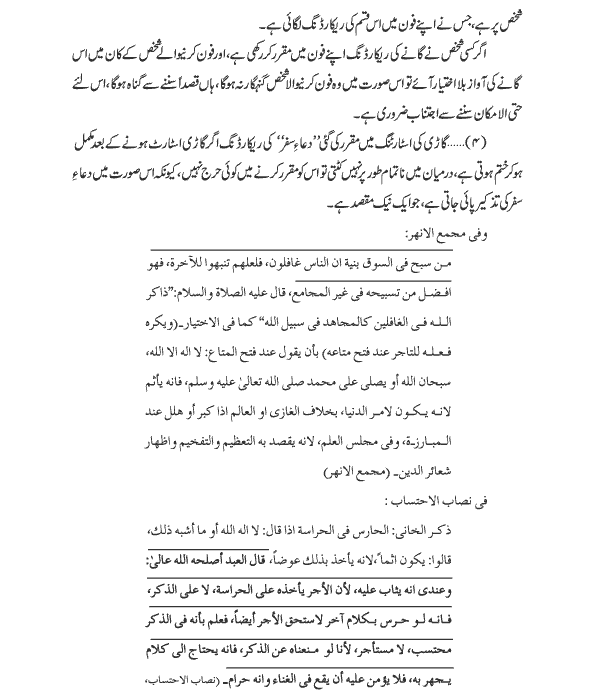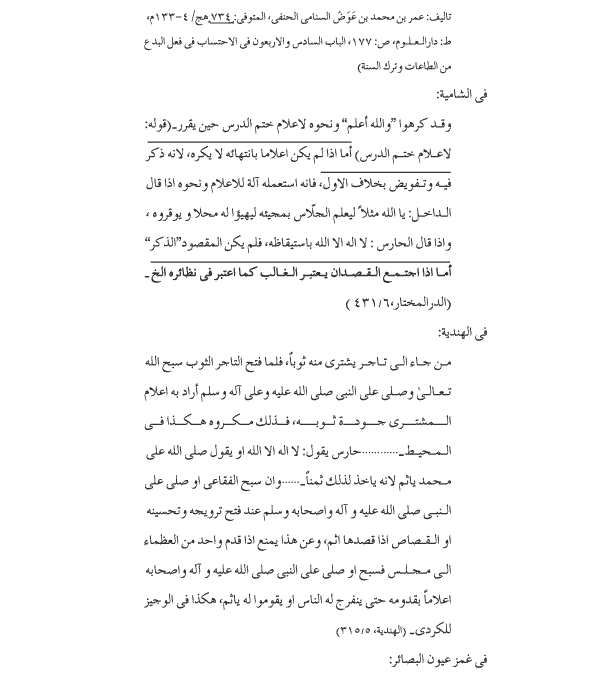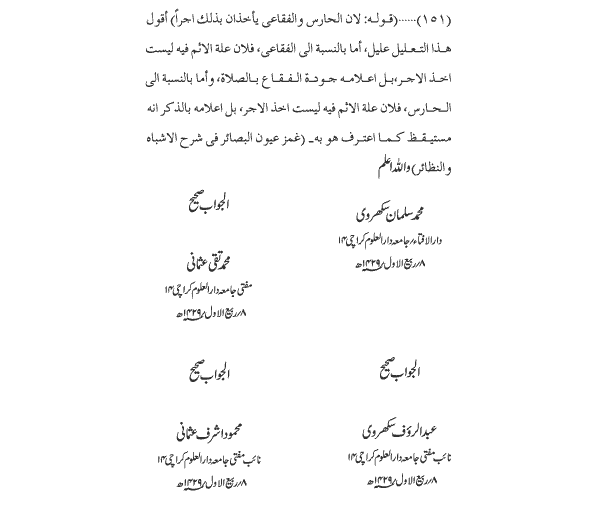The Battle of Mutah
Sent by: Abdullah
Nothing like this had ever happened in recent history. It was unheard of and against all international laws and tradition. The ambassador of Rasulullah sallallahu 'alaihi wasallam to Syria, Hadhrat Harith bin Umayr, had been murdered by the ruler of Busra, Syria. This was also a low way of challenging the Messenger of Allah sallallahu 'alaihi wasallam to a fight.
At present the Muslims of Madinah were surrounded by a host of problems and Syria and Rome were the superpowers of that time. To take up their challenge would mean opening up a new and dangerous front. But the murder of an ambassador and sahabi-e-Rasul was not something to be taken lightly.
Rasulullah sallallahu 'alaihi wasallam was greatly grieved. He called the people and let them know of what had happened. At the same time he announced the formation of an army that would be headed by Hadhrat Zayd bin Harithah, his adopted son. If he were to be martyred, the command was to be taken by Hadhrat Ja’far bin abi Talib, his dear cousin; if he were to be martyred, the burden would fall on the shoulders of the brave poet sahabi Abdullah bin Rawahah radhiyallahu ta'ala anhum. And if he were to meet his Lord, then it would be up to the Muslims to choose whomever they thought appropriate for the position.
This way of appointing commanders was not the usual practice of the Prophet sallallahu 'alaihi wasallam. It told a story of its own; that all three of these respected personalities would not return to Madinah. A Jew who was listening said to Hadhrat Zayd,
“We have a saying among the Bani Israel that whenever a prophet stated in such a manner that if so and so gets martyred, so and so will take his place, then that person was doubtlessly killed. So, o Zayd! If Muhammad is really a prophet, then you will not return to him.”
Listening to this Hadhrat Zayd replied in cool tones, “Then hear, I give witness that Muhammad sallallahu 'alaihi wasallam is Allah’s true and chaste prophet.” With this answer he made it very clear where his loyalties lay even in a dire and hopeless situation and his fearlessness concerning death.
Rasulullah sallallahu 'alaihi wasallam gave the flag to Hadhrat Zayd radhiyallahu ta'ala with his own hands. An army of 3,000 men had been prepared that marched out of Madinah seen off by their Prophet sallallahu 'alaihi wasallam and a huge crowd of Muslims. They saw off their brave men under the shadow of duas,
“May Allah be your companion, and drive away evil from you, and bring you victorious (back to Madinah)”
The poet who was Abdullah bin Rawahah radhiyallahu ta'ala, answered back in instant verse,
“But I ask Allah for forgiveness
And the sword’s fatal blow
That gushes blood in froth
Or a deadly blow
From a Harrani’s lance
That goes through my insides
So
When people pass by my grave
They exclaim:
Allah had guided this ghazi
And he has reached his abode”
So, these were the sentiments and high valour with which the me of Madinah set forth towards Syria to answer the challenge of Heracleus and avenge the killing of their ambassador and friend Hadhrat Harith bin Umayr radhiyallahu ta'ala anh.
The seekers of martyrdom went on their way as far as Ma'an in Syria where they heard that Heraclius had come down to Ma'ab in Balqa' with 100.000 Greeks joined by 100.000 men form Lakhm, Judham, al-Qayn, Bahra and Bali. This was another unusual episode, for why would a superpower give so much importance to a band of just three thousand fighters that it had brought out for them 200,000 soldiers? It shows the terror Allah puts in the hearts of the kuffar for true Muslims.
The situation demanded some consideration. So the Muslims spent two nights at Ma'an pondering what to do. Many of the sahabah were of the view that since the state of affairs was unforeseen, they should ask Rasulullah sallallahu 'alaihi wasallam for advice and assistance. Many of the army were of the same opinion but Hadhrat Abdullah ibne Rawahah gave an inspiring speech that boosted the morale of the people, he said,
“O people! That which has begun to upset you, by Allah! It is the same that you came in search of…. and that is martyrdom. Remember! Whenever we have fought a battle it has never been on strength of numbers, or that of weapons and horses. I was in Badr and by Allah! We had no more than two horses; I was in Uhud, and we had only one horse. Yes, the basis for our battles has always been our religion with which Allah has honoured us. So come! Move forward; one of two honours will be yours: either you will defeat your enemy, and fulfill the promise of Allah and his Messenger that is never untrue; or you will be martyred and join your brothers in Jannah!”
This speech filled the sahabah with zeal and fervour and they felt ready for anything that came their way. They cried,
‘By Allah ibne Rawahah is right.'
Then people went forward until when they were on the borders of the Balqa' the Greek and the Arab forces of Heraclius met them in a village called Masharif. When the enemy approached, the Muslims withdrew to a village called Mutah. There the forces met and the Muslims made their dispositions, pitting over the right wing Qutbah ibn Qatadah of Banu Udhrah, and over the left wing an Ansari called Ubaya ibn Malik.
When fighting began Zayd ibne Harithah fought holding the Messenger's standard, until he died from loss of blood among the spears of the enemy. Then Ja’far radhiyallahu ta'ala took it in his hand. Lances and arrows were flying in all directions. It became difficult for Hadhrat Ja’far to sit on his horse so he jumped off with the standard in his right hand. An enemy approached and cut off his hand. He swung the standard in his left hand. That too was targeted and sliced off by an enemy soldier. Not wanting the flag of the Prophet sallallahu 'alaihi wasallam to fall, he clenched it with his two stumps to his breast, but the third strike of the sword sent him to the other world as a martyr.
Ibne Umar radhiyallahu ta'ala reports that on the day of the battle of Mutah he stood beside Ja’far who was dead, and he counted fifty wounds on his body, caused by stabs or strokes, and none of those wounds was in his back.
According to the instructions of Rasulullah sallallahu 'alaihi wasallam, Abdullah bin Rawahah now took up the standard and advanced towards the enemy. The long journey and the fight had weakened his strength the effects of which were apparent on his face. God knows when he had had the last morsel of food in his mouth. As he went towards the enemy, a cousin of his came to him with some pieces of meat and said, “You have strived a lot these days, eat this to keep your back straight.” Ibne Rawahah had just reached out his hand when he heard a battle cry from the Muslims. He instinctively put down the food, picked up his sword and ran towards the action, saying to himself, “Are you engaged with the world at a time like this?” he fought the battle of a brave man and died doing his duty towards Allah.
The fallen flag was picked immediately by Hadhrat Thabit bin Aqram radhiyallahu ta'ala anh. He shouted out, “Decide on a leader among you.”
The people shouted back, “Then let it be you!” but he did not agree. Then Hadhrat Khalid bin Walid was selected and was handed over the standard. He fought with all his heart and was able to defeat the 200,000 of the enemy and bring the Muslims safely back to Madinah.
Back in Madinah, Rasulullah sallallahu 'alaihi wasallam was not unaware of what was happening. Once, even before any news had come from the battlefield, he called the sahabah to him and said,
"Zayd took the flag (as the commander of the army) and was martyred, then Ja’far took it and was martyred, and then Ibne Rawahah took it and was martyred." At the time, the Messenger of Allah sallallahu 'alaihi wasallam’s eyes were shedding tears. He added, " Then flag was taken by a sword amongst the swords of Allah (Khalid bin Walid) and Allah made them (the Muslims) victorious."
This is the same battle after which Rasulullah sallallahu 'alaihi wasallam gave the tidings of Hadhrat Ja’far being given two wings in place of his hands, and this is why he is remembered as Ja’far Tayyaar (one who flies).
Khalid bin Walid radhiyallahu Ta’ala said, 'On the day of the battle of Mutah, nine swords were broken in my hand, and nothing was left in my hand except a Yemenite sword of mine.'
One of the most important things to remember about this battle is the speech given by Hadhrat Abdullah bin Rawahah. Read it again and remember it for such times have never left the Muslims and never will.




